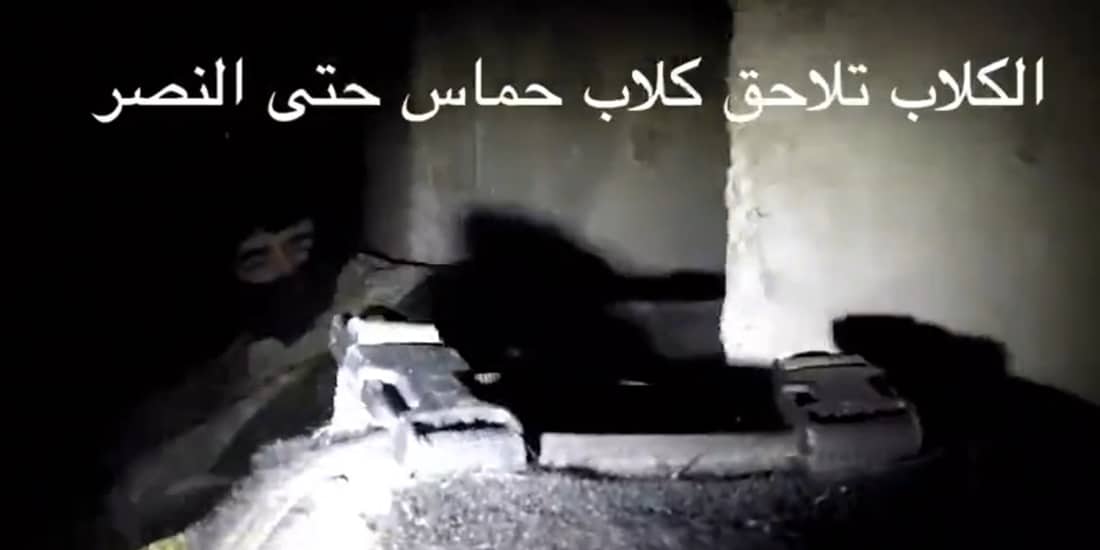IDF Attack Dogs
Attack dogs belonging to the Israeli Special Forces pursue Hamas terrorists inside their tunnels and defeat them.
In a remarkable display of tactical ingenuity, the Israeli Special Forces have once again proven their resourcefulness in the ongoing conflict with Hamas. In the labyrinthine tunnels beneath the Gaza Strip, a new kind of warfare unfolded as specially trained attack dogs were deployed to pursue and subdue hidden threats. These elite canine units, integral members of the Israeli military, penetrated the subterranean passages that have long served as a strategic asset to Hamas terrorists.
Tunnel Warfare
These dogs, renowned for their agility, keen senses, and unwavering loyalty, underwent rigorous training tailored to navigate the dark and cramped conditions of the tunnels. Equipped with body cameras and two-way communication devices, they relayed critical intelligence back to their handlers, enabling the forces to engage with precision. Their involvement resulted in significant disruption to the Hamas operatives, thwarting plans designed to destabilize the region.
Tunnel warfare is a strategic combat method where tunnels are used for surprise attacks, troop movements, and protected storage. Historically significant, this type of warfare has been modernized for both defensive and offensive operations, including guerilla warfare by insurgent groups and conventional forces.
Terrorist groups use tunnels to avoid surveillance, safely transport fighters and weapons, launch attacks, and sometimes to take hostages or smuggle goods. These underground networks complicate military responses and pose risks of collateral damage when they run beneath civilian areas.
Constructing tunnels is typically a covert operation to avoid detection, often leading to a cat-and-mouse game between tunnel builders and military forces equipped with detection technologies like ground-penetrating radar. Soldiers face unique challenges such as limited space, potential for tunnel collapse, and difficulty in communication.
To counter tunnel warfare, militaries employ specialized training, develop technology to detect and destroy tunnels, and sometimes use direct action raids. The psychological toll on soldiers and civilians can be profound, with the threat of unseen attacks creating an environment of constant vigilance.
Anti-terrorism
This operation has not only highlighted the unique bond between soldiers and their canine partners but also demonstrated a novel approach to anti-terrorist operations. The success of these dogs in such a complex environment is a testament to the innovative and adaptive strategies of the Israeli Special Forces. As tensions persist, the utilization of such specialized units is set to play a pivotal role in ensuring security and stability in the volatile landscape of Middle Eastern geopolitics.
Use of Attack Dogs in Military Operations
Military attack dogs are a critical asset in modern armed forces, trained for various roles including direct combat, patrol, search and rescue, and detecting explosives. These dogs undergo intensive training to hone skills such as obedience, aggression on command, and specialized detection abilities. Breeds like German Shepherds and Belgian Malinois are preferred for their intelligence, strength, and reliability.
In combat zones, these canines are equipped with protective gear like vests, and may carry cameras or communication devices for remote instruction. The bond between a handler and their dog is pivotal, ensuring trust and effectiveness in high-stress scenarios.
Their use is subject to strict legal and ethical guidelines, ensuring their welfare and the appropriateness of their deployment in military operations. After their service, these dogs are often adopted, frequently by their handlers, ensuring a humane and respectful retirement. Overall, military dogs are invaluable for their loyalty, sensory capabilities, and their ability to perform tasks that are beyond human capabilities.

